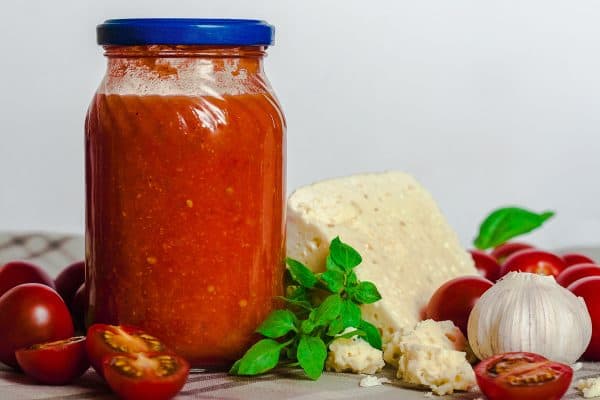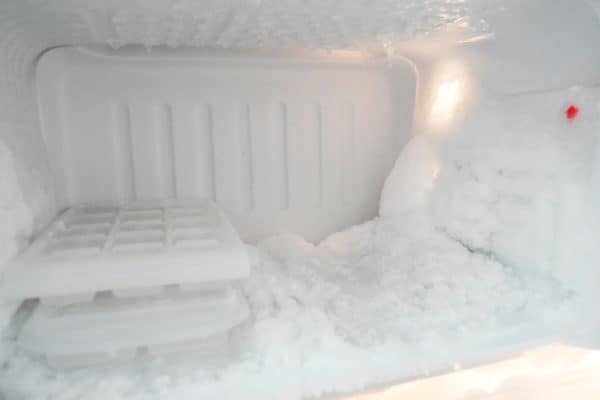You invited friends and family for a small gathering at home and you decided to buy aged beef. Thinking about the aged steaks you’ll make is enough to make your mouth water. But you’re still racking your brain if you can freeze aged beef to preserve the meat’s quality. We went through different reports from food experts to solve this concern.
Yes, you can freeze aged beef, and freezing it shouldn’t adversely affect the flavor significantly. However, the aging process stops, and a slight change in texture can occur when the meat remains in the freezer. The beef will stay in stasis until removed from the freezer.
Proper storage is the key to preserve the taste and texture of aged beef. Continue reading to discover how industry experts maintain the quality and freshness of their aged beef.
NOTE: WE MAY GET A COMMISSION IF YOU DECIDE TO MAKE A PURCHASE THROUGH THESE LINKS. THERE'S ADDITIONAL NO COST TO YOU. CHECK THE BOTTOM OF THE PAGE FOR MORE INFORMATION.
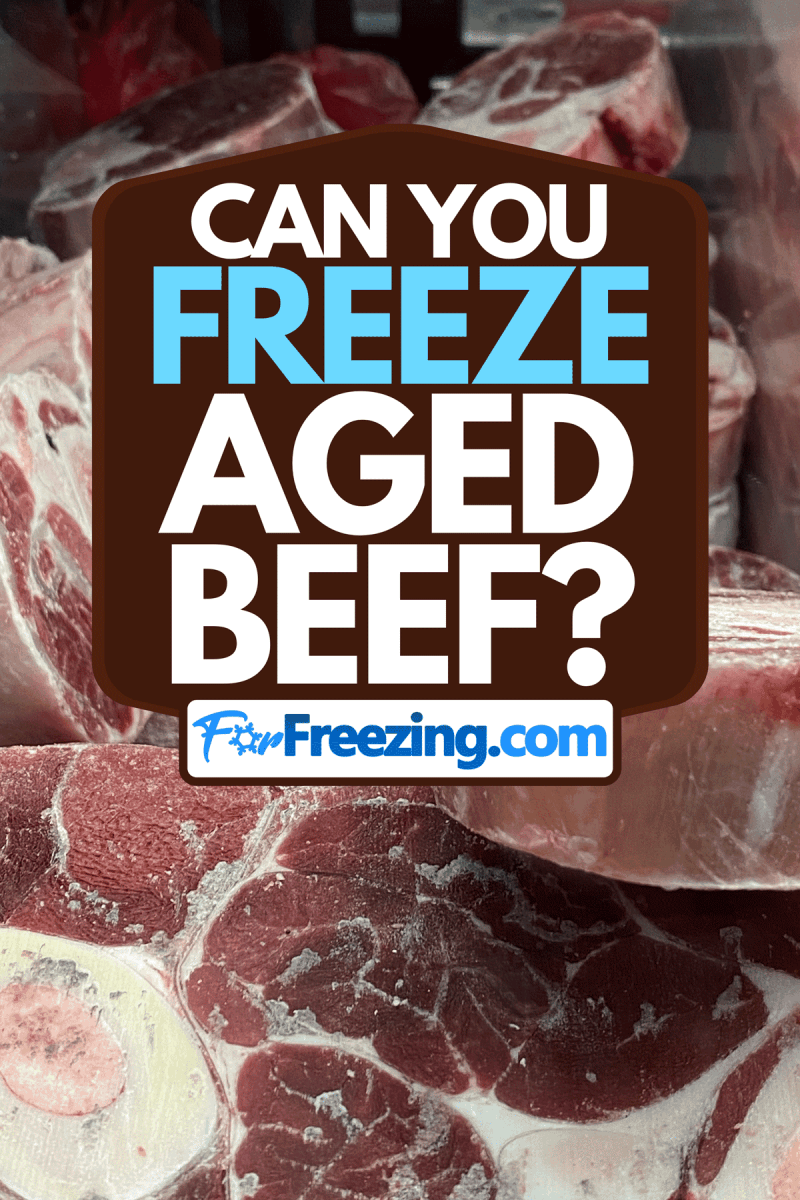
What is Wet Aged and Dry Aged Beef?
Wet aging allows the beef to develop over time while bathing in its juices. It's also less expensive to wet age beef than to use dry-aging methods. On the other hand, dry-aging beef can be costly as the process requires the meat to hang in a humid and refrigerated environment at exact levels. Additionally, the method requires the individual to be at a reasonably high skill set to dry age beef successfully. If done properly, dry-aged beef will have a more robust and profound flavor than wet-aged options.
Freezing Aged Beef
Certain factors play vital roles to maintain the quality of frozen aged beef. Although beef can stay in the freezer for extended periods, the cut, fat content, and other elements will affect the results of storing the meat in the freezer.
Factors to Consider When Freezing Aged Beef
Cuts
Thinner cuts of aged beef will freeze better than thicker portions. It’s because the freezing temperatures won’t have significant difficulty in penetrating the inner layers of thin meats as compared to thicker variants. For example, a piece of aged short loin beef can have a uniform freeze as compared to a thick tenderloin cut.
Fat Content
It’s difficult to freeze fats if they can be frozen at all. Therefore, leaner cuts, such as top sirloins and eye of round roasts, will freeze better than thicker options. Removing the excess fat can also help freeze the aged beef better than expected.
Sous Vide
Sous vide is a French term that means to vacuum seal foods in airtight containers and placing those cases in temperature-controlled waters. Using sous vide techniques allows aged beef to use accurate circulation and temperature control to provide consistent results without sacrificing the meat’s taste and flexibility.
How to Freeze Dry Aged Beef
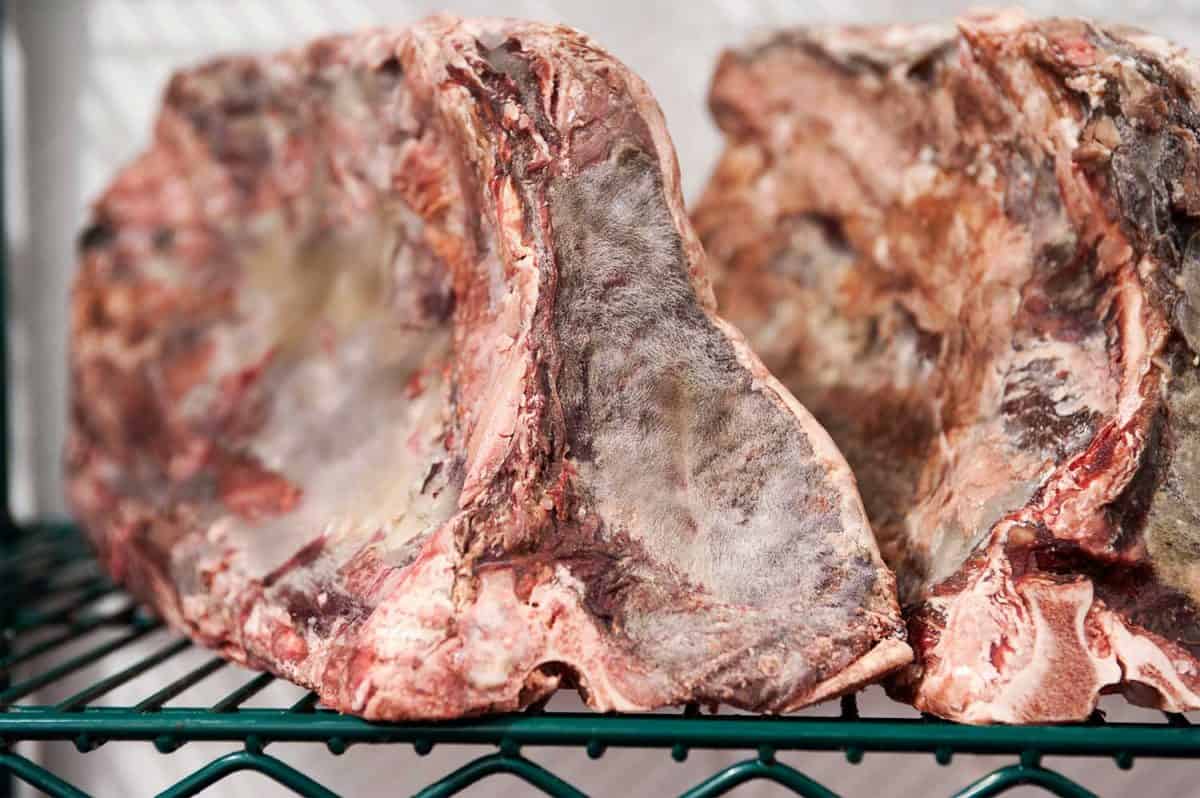
- Select your preferred cut.
- Prepare the cut by trimming the excess fat.
- Salt and flavor the meat (optional).
- Cook the meat to one degree less of the desired doneness. For example, cook the medium to medium-rare doneness if you want to eat a medium-done steak.
- Put the meat in a tightly sealed bag for a day or two to test for excess moisture content. Put it in the freezer at 40 degrees Fahrenheit (4.44 degrees Celsius) to see if moisture builds up. If possible, age the beef more if signs of excess moisture appear.
- If no signs of excess moisture appear, transfer the aged beef to a freeze-dryer. Make sure the appliance exposes the meat to a consistent 0 degrees Fahrenheit (-17.78 degrees Celsius) temperature.
Can You Freeze Wet Aged Beef?
Yes, you can freeze wet-aged beef and the process is similar to storing its dry-aged counterpart in the freezer. However, the main difference is applying the wet-aging process for about 2 to 4 weeks before freezing the meat. In turn, the beef will retain its color, tenderness, and water-holding abilities without negatively affecting the meat’s quality, according to a 2015 study.
How Long Can You Keep Beef in the Freezer?
Beef can be stored up to 12 months in the freezer at 0 degrees Fahrenheit (-17.78 degrees Celsius), according to a post from FoodSafety.gov. However, the beef tastes the best within four months of being frozen. The meat will remain edible after the four-month mark, but it will lose some of its flavor and texture.
How Do You Defrost a Large Piece of Beef?
Three ways exist to defrost a large piece of beef: in cold water, in the refrigerator, and the microwave.
Cold Water
Put the frozen large piece of beef in cold water without removing its packaging. If you already removed the beef from its original container, put it inside a tightly sealed bag before placing it in cold water. Leave the meat until it thaws. Take note that some types of beef, like stew meat, defrosts faster in cold water than whole roasts. If you don’t want to proceed with cooking the beef dipped in cold water, you can refreeze it without any significant risks.
Refrigerator
Place the large piece of beef on a plate or dish before putting it in the refrigerator. The meat can take at least two days to defrost in the appliance. Additionally, place the beef on the lowest shelf so it doesn't catch most of the cold temperatures. Also, defrost the freezer to ensure the proper delivery of appropriate temperatures to the meat.
Microwave
Put the large piece of beef in a plate or dish and set the microwave to an automatic defrost setting. Although defrosting using this method is possible, it’s not the most practical solution. Using the microwave to thaw a large frozen piece of beef can increase the growth of lingering harmful bacteria. If you plan to use this method, make sure to cook and eat the meat immediately to reduce bacteria buildup risks.
Is Aged Meat Safe?
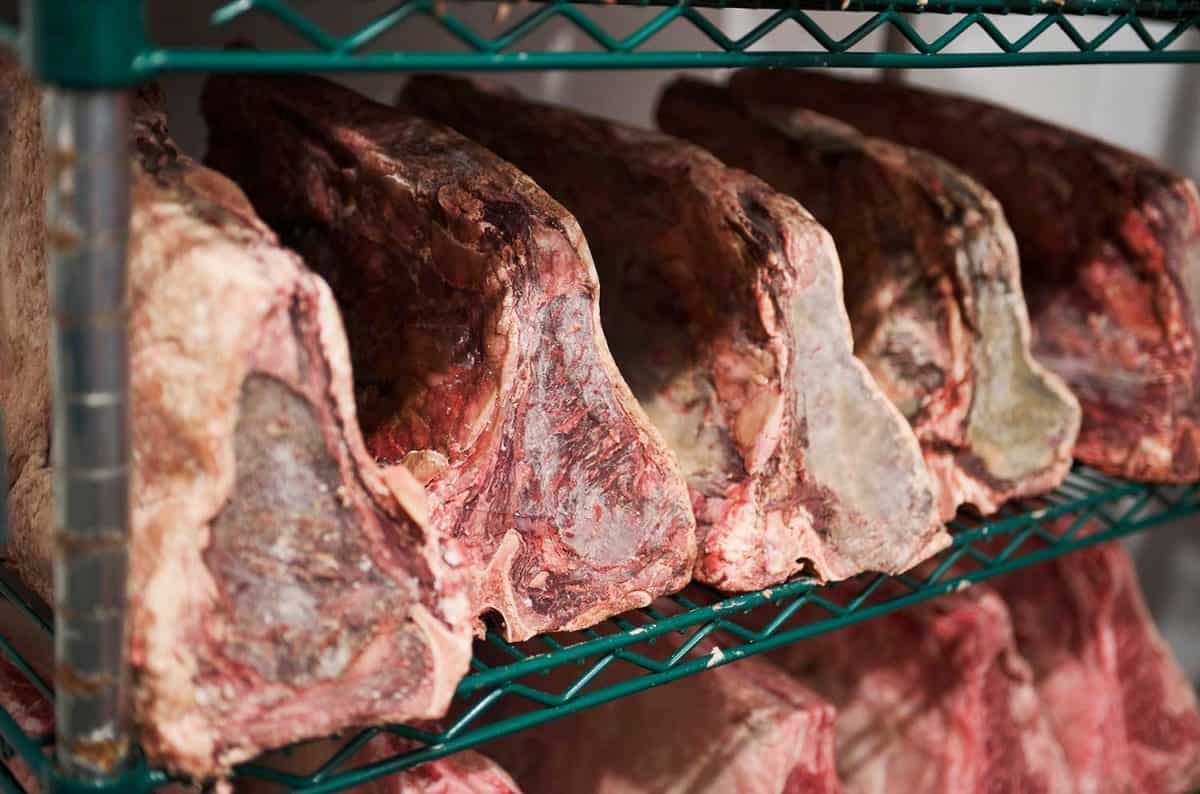
Aged meat kept at a consistent temperature and humidity levels are safe to eat. Also, proper sterilization of the aging environment is important to prevent harmful bacteria buildup.
Different methods exist to help keep aged meat safe. For instance, using noteworthy dry-aging cabinets promote better chances of producing dry-aged meat than letting it hang in a kitchen. Consequently, wet aging meat while ensuring it stays bathed in its juices helps maintain its flavor and texture for extended periods.
If you’re buying aged meat from a local butcher, consider sampling the supplier’s wares before making the transaction. That way, you’ll get an idea if the product is safe to consume in large quantities or not.
Does Aged Beef Taste Better?
Aged beef, particularly when dry-aged, makes the taste more robust and tender than preparing and eating the meat conventionally. The enzymes present in the meat break down some of the collagen, a substance that helps holds the beef's strength and structure. Removing part of the collagen makes the beef tenderer than before, producing a meat density that consumers can sink their teeth into.
Additionally, water evaporation will make the beef lose some of its weight during the aging process. In turn, the flavor becomes richer and beefier while making it produce a mineral yet slightly funky aroma. Take note that the longer the beef ages, the more water it loses, which will make the meat’s flavor more intense.
Final Words
It should now be clear that you can freeze aged beef without compromising its flavor and texture. Take note that the freezing process is slightly different for dry and wet-aged beef. Additionally, some important factors help promote a uniform freeze for aged meat. If done correctly, you can freeze aged meat and preserve its quality for up to a year.

